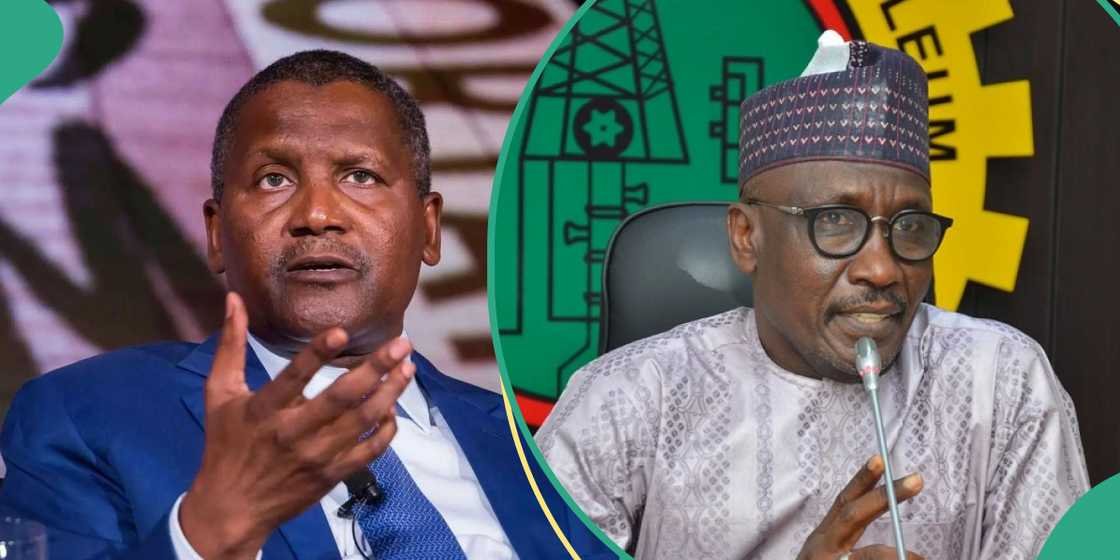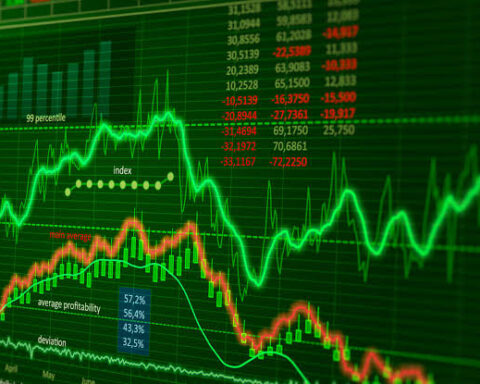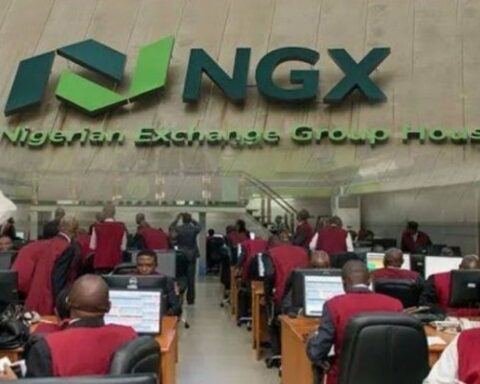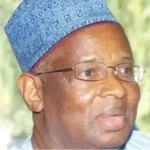In this week’s HARD BEAT, we ask: How can Dangote circumvent the hurdles placed in its path by vested interests to seamlessly deliver appropriately priced petrol products to Nigerians?
Now consider this. About a week and half ago, some major oil marketers in Lagos moved their PMS prices from N868, N870 per litre to N910 per litre. By Tuesday, September 24, they had moved them down to N897, 898, a lower price. Meaning that, the subsidy bogey that the government is still bringing to bear on the management of the downstream sector of the oil industry remains what it is: a bogey.
This week’s HARD BEAT seeks to illuminate the dark recesses of the nation’s opaque oil industry administration and, by so doing, challenge the citizens to task government on sincerely allowing buyers and sellers to determine the appropriate prices of petroleum products in Nigeria. As it is now, the government, not the so-called market forces, may well be the problem, writes ADEMOLA TIJANI.
The following is a post that many may have seen on the web. But it is very appropriate here because it speaks directly to the issue at stake here: the opacity that defines the administration of the nation’s oil industry:
“M.K.O. Abiola of blessed memory was asked by a journalist if he could contemplate increasing the price of petrol if he becomes the president of Nigeria.
“Abiola laughed and answered as follows:
“You know I am a chartered accountant. If anybody confronts me with the idea that fuel price should be increased, the first question I will ask is, how much does it cost to produce a litre of petrol, minding the other derivatives from crude?
“Abiola concluded that we might be producing a litre of petrol at zero cost, taking into consideration the other derivatives from crude oil.
“For a price to be established, you must know your cost of production or procurement, then do a plus and minus to arrive at your profit margin. From all the discussion and writeups that I have seen, nobody has been able to ask the vital question when it comes to petrol pricing as posed by M.K.O. Abiola to the journalist.

“The conclusion one can make is that our leaders do not have the interest of the people when it comes to issues that have to do with the living standards of the people. They would rather prefer to see the people continue to suffer. So, even the issue of petrol subsidy is a scam. How can you be subsidising a product that you produce or procure at zero cost?
“Below is another post that will further bring lucidity to the point M.K.O. Abiola was trying to make to the journalist.
“I turned to Meta AI today, having listened to the ongoing drama in our oil sector.
“Meta, I wrote, can you talk about the petroleum industry? Meta affirmed that it can, and in fact I should feel free to ask any question in the industry, it added.
“So, I asked it to give me a breakdown of all the derivatives from one barrel of crude oil, especially Nigeria’s type, the Bonny light.
“Meta bombarded me with information, almost making me dizzy: that Nigerian crudes among which is Bonny Light, are among the most sought after in the world; Brent from North Sea, Dubai from Middle East, Bonnia from Malaysia, Bonny from Nigeria and Kirkuk from Iraq. And then it mentioned this about our Bonny Light: low Sulfur Content (less than 0.5%); high API Gravity (above 35°); balanced product yield (favorable distribution of gasoline, diesel, and jet fuel and low heavy metals and contaminants.
“Meta continued: ‘According to various sources, including the Nigerian National Petroleum Corporation (NNPC) and industry reports, here’s a typical yield per barrel of Bonny Light crude: gasoline (PMS): 12.5 gallons (47.3 liters); diesel: 9.5 gallons (36.0 liters); jet fuel (kerosene): 3.5 gallons (13.2 liters); fuel oil: 6.0 gallons (22.7 liters); petrochemicals: 2.5 gallons (9.5 liters); other products (e.g., asphalt, lubricants): 1.5 gallons (5.7 liters). Total yield: 42 gallons (159 liters) per barrel.’
“I thanked Meta and asked my final question, “Can a refinery give free PMS and be able to recover costs and still make profits from other crude oil products?”
“It answered: ‘Yes, a refinery can recover costs and make profits from other crude oil products even if it gives away gasoline (PMS) for free. Here’s a breakdown: From a barrel of Bonny Light crude, the refinery gets: diesel: 9.5 gallons (36.0 liters) – high margin product; jet fuel (kerosene): 3.5 gallons (13.2 liters) – high margin product; fuel oil: 6.0 gallons (22.7 liters) – moderate margin product; petrochemicals: 2.5 gallons (9.5 liters) – high margin product; other products (e.g., asphalt, lubricants): 1.5 gallons (5.7 liters) – high margin product.
“These products have varying profit margins, but diesel, jet fuel, and petrochemicals typically have higher margins than gasoline. If the refinery can sell these products at market prices, it can recover costs and generate profits.
“Assuming an average profit margin of: 10% for diesel; 15% for jet fuel; 12% for petrochemicals; 8% for fuel oil and 15% for other products, the refinery can generate significant profits from these products, even if gasoline is given away for free. However, this depends on various factors, including, refinery efficiency and costs, market demand and prices for the products, competition and market dynamics’.”
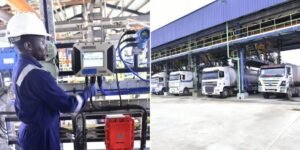
If the foregoing is anything to go, is there any reason, then, other than the corruption, rapacity and the remorseless thieving tendencies of the nation’s political and economic elites, why petroleum products are so pricey in Nigeria?
On Thursday, September 19, 2024, Tunji Oyebanji, who serves as the managing director of 11Plc, provided an important update regarding fuel distribution. He confirmed that a number of marketers have begun the process of lifting products through the Nigerian National Petroleum Corporation (NNPC). This development marks a significant step in the ongoing efforts to streamline fuel supply and enhance availability across the market. Oyebanji’s announcement reflects the company’s commitment to ensuring that its partners have access to essential products in a timely manner.
According to the report, 11 PLC, along with Total Energies and several other independent marketers, has officially commenced the process of lifting Dangote Petrol through the Nigerian National Petroleum Corporation (NNPC). This development is significant as it indicates a collaborative effort among these companies to enhance the distribution of fuel in the market. By partnering with the NNPC, these marketers aim to ensure a more reliable supply of Dangote Petrol, which is crucial for meeting the growing demand for fuel across various regions. This initiative not only aims to improve accessibility for consumers but also to stabilize the market dynamics related to fuel distribution in the country.
The arrangement established for the distribution of fuel dictates that marketers must first complete their payments on the NNPC trading portal before they are granted permission to lift the fuel from the refinery. This requirement ensures that all financial transactions are processed and confirmed prior to the physical movement of products, thereby maintaining a level of accountability in the distribution process.
However, one aspect that continues to perplex industry observers is the fact that the NNPC remains the sole distributor of fuel from the Dangote refinery. This situation has raised questions about the distribution dynamics and the reasons behind NNPC’s exclusive role. According to Adedapo Segun, the executive vice president of the downstream sector at NNPC, the inability of marketers to purchase fuel directly from the refinery stems from the fact that the product is still subject to subsidies. This subsidy framework necessitates that all transactions go through NNPC to ensure proper management and regulation of the pricing structure before the fuel reaches the market.
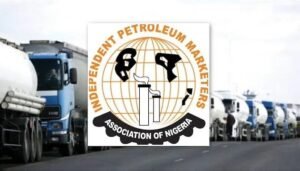
The situation surrounding the fuel subsidy remains deeply ambiguous, especially in light of President Tinubu’s announcement during his swearing-in ceremony in 2023, where he declared that the subsidy had been eliminated. This raises questions about the type of subsidy Adedapo Segun is referencing. Recent reports indicate that marketers have started lifting Dangote petrol from the NNPC Trading portal at a price of N765 per litre.
Chinedu Ukadike, the public relations officer of the Independent Petroleum Marketers Association of Nigeria (IPMAN), expressed optimism that marketers are working towards reaching an agreement with the Dangote refinery that would allow them to lift fuel directly from the facility. Ukadike mentioned that a meeting is scheduled for this week between independent marketers and officials from the refinery. He noted that previous discussions between Dangote and IPMAN had been positive, with marketers expressing their satisfaction that the refinery appears to be moving away from relying solely on the Nigerian National Petroleum Company Limited (NNPC) as its distributor.
This development brings a sense of hope for the independent marketers, who are eager for a more direct relationship with the refinery. However, it raises the question of why NNPC has acted as a barrier, preventing these marketers from gaining direct access to the Dangote refinery. There is speculation that there may be either overt or covert arrangements among certain influential individuals, often referred to as an “oil cabal,” who have benefited significantly from fuel imports and may be resistant to changes in the current distribution framework. This situation warrants further examination, as it could have significant implications for the fuel market in Nigeria.
There are ongoing claims and counterclaims between Dangote Refinery and the Nigerian National Petroleum Corporation (NNPC) concerning the pricing of fuel. Dangote Refinery asserts that its fuel products will be priced in accordance with international market standards, emphasizing that local refining has the potential to reduce fuel costs for Nigerians. Furthermore, they argue that by decreasing Nigeria’s reliance on fuel imports, the refinery will contribute to stabilizing the naira by alleviating pressure on foreign exchange reserves.
On the other hand, NNPC has expressed skepticism regarding these assertions, characterizing them as mere illusions. NNPC officials have raised concerns about the feasibility of Dangote Refinery’s market-based pricing translating into lower fuel prices for the average Nigerian consumer. They point out that international oil prices are notoriously volatile and that, without government intervention or subsidies, consumers could face increased costs in the event of a spike in global oil prices.
In addition, NNPC has raised significant concerns about the potential for Dangote Refinery to monopolize the downstream sector of Nigeria’s petroleum industry. As the largest single-train refinery in the world, it is poised to wield considerable influence over the local fuel market. NNPC has also noted that despite the benefits of local refining, Dangote’s pricing could still be subject to fluctuations based on international market factors. This dynamic raises important questions about the balance of power in the fuel distribution sector and the implications for consumers in Nigeria.
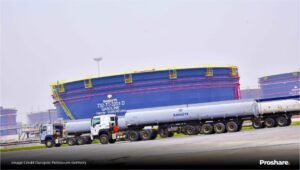
Regardless of the various claims and counterclaims surrounding the issue, it is essential to recognize what the masses truly desire: affordable fuel prices. The significance of this need cannot be overstated, as the potential impact of higher fuel prices on the overall economy can be quite severe and is best understood when one considers the broader implications.
In Nigeria, fuel prices have a direct correlation with transportation costs. When fuel prices increase, the cost of transporting goods and services also rises, creating a ripple effect throughout the economy. This relationship is crucial because it affects the prices of everyday commodities, making it difficult for many Nigerians to afford basic necessities.
Moreover, there is a palpable sense of anxiety among the populace regarding the possibility of Dangote implementing a purely market-based pricing model for fuel. Many fear that such a move could result in a significant increase in the cost of living, exacerbating an already challenging economic situation. This apprehension is particularly heightened in light of the country’s persistently high inflation rates, which further compound the struggles faced by ordinary citizens. As a result, the desire for affordable fuel prices remains a critical issue, reflecting a broader concern about economic stability and the welfare of the Nigerian people.
There has been a significant and widespread public discourse surrounding the question of whether the government should take action to regulate fuel prices once Dangote’s refinery becomes operational. This conversation has garnered much attention and is fueled by various perspectives on the role of government in managing essential commodities.
While it is true that the government has taken steps to reduce its direct involvement in the pricing of fuel, a considerable segment of the population still holds the belief that some form of regulation is essential. This belief stems from a concern that without oversight, prices could rise to exorbitant levels, placing an unbearable financial burden on consumers and further complicating their daily lives.
Officials from the Nigerian National Petroleum Corporation (NNPC) have indicated that even with the operations of Dangote’s refinery, there may still be a need for government intervention in the form of policy implementation. Such measures would aim to ensure that fuel prices remain affordable for consumers. This is particularly relevant given concerns about potential monopolistic practices that could emerge if one entity gains too much control over the market. The fear is that in a monopolistic scenario, the incentive to keep prices competitive might diminish, leading to higher costs for consumers and increased economic hardship for many.
Overall, the debate highlights the delicate balance between market freedom and the necessity of regulation to protect the interests of the public, emphasizing the critical importance of government oversight in maintaining fair pricing in the fuel sector.
The Dangote Refinery holds the promise of delivering a multitude of economic benefits that could significantly impact Nigeria’s landscape. Among these potential advantages are job creation, which could provide much-needed employment opportunities for many Nigerians; the opening up of export markets, which could bolster the economy by increasing foreign exchange earnings; and a reduction in fuel importation, which would not only lessen Nigeria’s dependence on imported fuel but also improve the nation’s trade balance.

However, the central debate that continues to occupy the minds of many citizens revolves around whether these anticipated benefits will indeed be sufficient to offset any potential costs that consumers may face. There is a palpable sense of uncertainty regarding how the operational dynamics of the refinery will play out in practice and what impact it may have on fuel pricing.
As such, Nigerians are not merely awaiting the arrival of Dangote fuel; they are fervently hoping for fuel prices that are affordable and accessible. The urgency of this hope is magnified by the current state of the economy, which many perceive as saturated and struggling. The harsh economic realities faced by numerous citizens have plunged a significant portion of the population into abject poverty, making the need for affordable fuel even more critical.
In this context, the expectation is clear: the benefits of the Dangote Refinery must translate into tangible relief for consumers, alleviating the financial pressures they currently endure and contributing to a more stable and prosperous economic environment for all.
